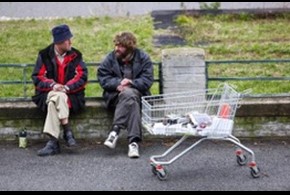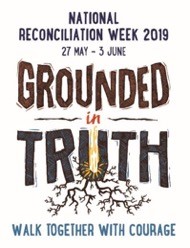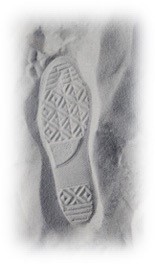Another celebration for our family, and a prayer from us that the significance of this day will be remembered and lived out during their lives.
It is not lost on me that the following Gospel reading (John 14:23-29) will be proclaimed as part of their Mass:
Jesus answered him, “Those who love me will keep my word, and my Father will love them, and we will come to them and make our home with them. Whoever does not love me does not keep my words; and the word that you hear is not mine, but is from the Father who sent me.
I have said these things to you while I am still with you. But the Advocate, the Holy Spirit, whom the Father will send in my name, will teach you everything, and remind you of all that I have said to you. Peace I leave with you; my peace I give to you. I do not give to you as the world gives. Do not let your hearts be troubled, and do not let them be afraid. You heard me say to you, ‘I am going away, and I am coming to you.’ If you loved me, you would rejoice that I am going to the Father, because the Father is greater than I. And now I have told you this before it occurs, so that when it does occur, you may believe.
May Eloise and Eliza make space for Jesus to be at home in them; may they keep his word, and may peace reign in their hearts, in their minds in their speech and in their actions. The Holy Spirit has already been conferred upon them in the Sacraments of Baptism and Confirmation, and with each day they live and move and have their being.
At the Council for Mission (CfM) meeting on Tuesday 21 May, we explored the program which is being presented in many of our schools called Make Jesus Real (MJR). It is a program, which attempts to bring the Catholic faith to life for our students by showing them how to live it every day. It gives them all the tools they need feel the Spirit of Jesus each day and find the God Moments that are always happening around them. GTS sums up Jesus’ message, the way we Greet, Treat and Speak.
MJR can be incorporated into our everyday lives, at our schools through the use of basic manners, a positive attitude, showing tolerance towards others, giving time for reflection and using encouraging language to highlight the behaviours, values and attitudes that we want to see in our students.
At the CfM meeting, we explored the foundation of being a W.E.S.T. person:
- Welcoming
- Encouraging
- Able to say Sorry and
- Thank you
We also explored what it means to be an E.A.S.T. person:
- Exclude
- Argue
- Sulk
- Talk Back
Essentially the program is about having a personal relationship with Jesus. The Council for Mission is keen for all of us in the diocese to have such a personal relationship and to experience a change of heart.

 We explored Making Jesus Real in light of the issue of homelessness in our local communities, and our need to respond to this issue. Services provided to those who are experiencing homelessness focus on the needs of the individual, with attempts to house them and to work with them, so as to address some of the many complex causes of their homelessness. Even then it is difficult to find enough affordable properties in which to house them, often exacerbated because of financial difficulties and mental health problems. Another factor presented to us was the growing number of people, especially older women, and men presenting with children, also experiencing homelessness for the first time. Those who sleep rough are frequently exposed to violence, resulting in trauma.
We explored Making Jesus Real in light of the issue of homelessness in our local communities, and our need to respond to this issue. Services provided to those who are experiencing homelessness focus on the needs of the individual, with attempts to house them and to work with them, so as to address some of the many complex causes of their homelessness. Even then it is difficult to find enough affordable properties in which to house them, often exacerbated because of financial difficulties and mental health problems. Another factor presented to us was the growing number of people, especially older women, and men presenting with children, also experiencing homelessness for the first time. Those who sleep rough are frequently exposed to violence, resulting in trauma.
We remembered Sorry Day on Sunday 26 May, marking the beginning of National Reconciliation Week (27 May to 3 June). This year’s theme is Grounded in Truth, Walk Together with Courage. At the heart of all reconciling is the ability to see truth, listen deeply, love unconditionally, and actively live out justice and be at peace together.
At the heart of reconciliation is the relationship between the broader Australian community and Aboriginal and Torres Strait Islander peoples. To foster positive race relations, our relationship must be grounded in a foundation of truth.
When I arrived in the diocese in 2005, there existed an active Aboriginal Catholic Ministry group. However, over the years the involvement of people with this group has varied, but the good news is there is once again a greater sense of commitment, with our meetings taking place every two months at the Catholic Church at West Wallsend. Most recently, we were taken on an Aboriginal walk into Mount Sugarloaf and we are beginning to work on a Reconciliation Action Plan for the diocese. 
Reconciliation Australia’s RAP Framework provides organisations with a structured approach to advance reconciliation. At this stage we are working on the most basic RAP plan which is Reflect.
The RAP framework enables organisations to contribute to reconciliation by:
- building and encouraging relationships between Aboriginal and Torres Strait Islander peoples, communities, organisations, and the broader Australian community
- fostering and embedding respect for the world’s longest surviving cultures and communities.
- developing opportunities within organisations or services to improve socio-economic outcomes for Aboriginal and Torres Strait Islander peoples and communities.
By developing a RAP, we hope we can:
- implement a tried and tested framework, that is proven to drive reconciliation through practical actions
- turn our good intentions into action by formalising our commitment to reconciliation
- reaffirm our integrity by embedding an engaging framework which contributes towards good governance practices.
- join a dynamic, supportive and fast growing network of RAP organisations.
- gain greater esteem as an employer of choice and build a more dynamic and diverse workforce
- enable our staff to develop greater cultural awareness and professional development practices that will strengthen relationships with Aboriginal and Torres Strait Islander stakeholders
- gain access to new markets and better engagement with existing markets
- ensure more effective and relevant service delivery to Aboriginal and Torres Strait Islander peoples and communities.
We have already changed the name of the group to Aboriginal and Torres Strait Islander Catholic Ministry. It is our hope that by having a Diocesan Reconciliation Action Plan, we show that we care enough about the First Nations people to want to be in mutual relationship with them. We believe it will be empowering for our community to understand that reconciliation is a ministry that we are called into creating and living with the first people of this nation.
To sum up my message this week I thought I would conclude with a prayer from the Make Jesus Real program by J. M. McIntosh:
Make Jesus real to someone, 

Be His hands and feet;
Be Christ to those around you,
Reach out to those in need.
The only hands He has on earth
Are those that belong on you;
And the only feet He has to use
Are those that wear your shoes.
Take time to be like Jesus,
To listen with the heart;
Be someone they can count on,
Be a candle in the dark.
Make Jesus real to someone,
Be His light that shines on them;
To show his love to all the world,
Give your hands and feet to Him.